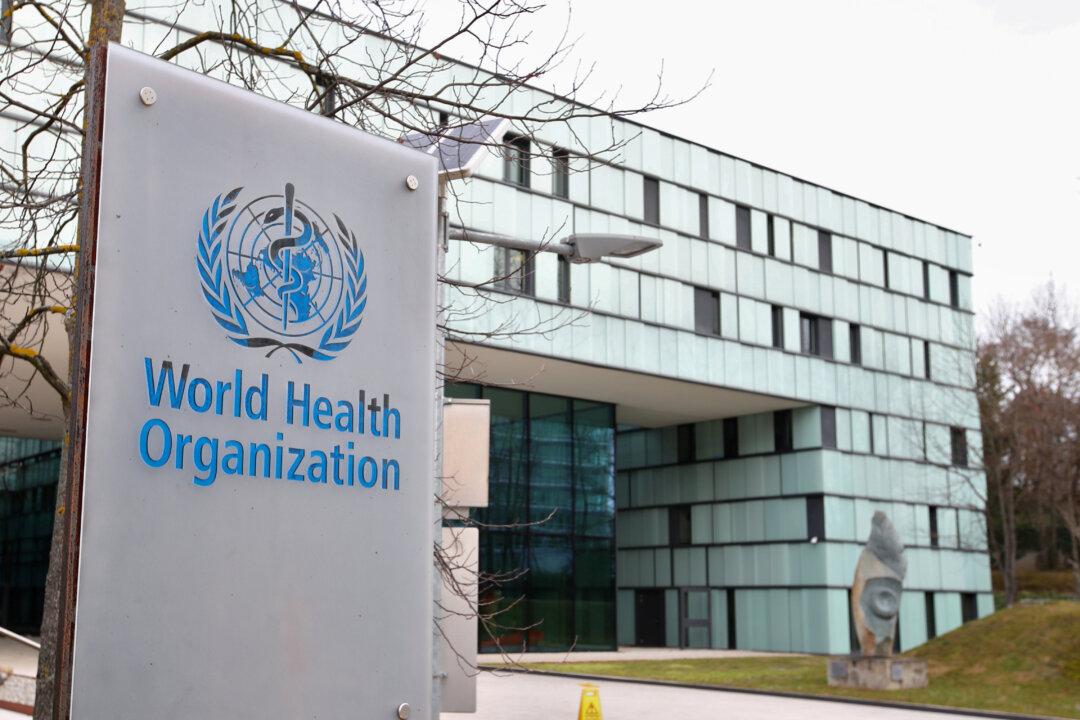The next phase of the World Health Organization (WHO) investigation into the origins of the coronavirus pandemic must be more scientific and data-driven, a group of scientists wrote in an open letter to the WHO on Friday.
WHO Team Investigating Pandemic’s Origins Must Have Better Access, Officials and Scientists Say

A logo is pictured outside a building of the World Health Organization (WHO) in Geneva, Switzerland, in a file photo. Denis Balibouse/Reuters
|Updated:




